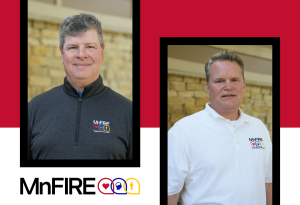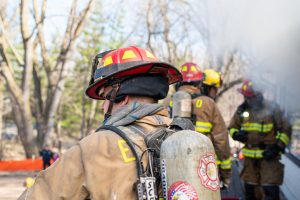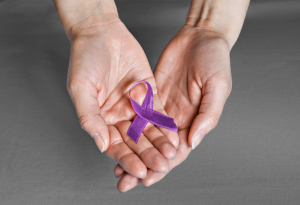While all systems of the body are important, the heart is the epicenter of it all. That’s why cardiac health is important to consider at all times of the year; however, it becomes even more prevalent during February, which is deemed American Heart Month by the American Heart Association.
There is good reason to raise awareness of heart issues such as heart attack, stroke and cardiac arrest. According to the Centers for Disease Control and Prevention, heart disease is the leading cause of death for both men and women. And in the fire service the No. 1 death by injury according to the National Fire Protection Association is cardiac arrest, which doesn’t only affect people with heart disease. Cardiac arrest is also the cause of death for about 436,000 Americans each year.
MnFIRE’s own executive director, Wayne Kewitsch, knows all too well about cardiac arrest and the importance of heart health. Within a seven-month span in 2020, Kewitsch experienced three cardiac arrest incidents, which ended his 25-year career in the fire service.
“I don’t want that to happen to any other firefighters,” said Kewitsch, who is the former Richfield Fire Department Chief.
Two of his cardiac arrests happened about one month apart. The first one, Kewitsch’s wife, Ruth, watched as their son, Jack, performed CPR on Kewitsch in the family’s home before seven Edina paramedics arrived and stepped in. The second incident happened while Kewitsch and Ruth were driving north on Highway 169 for a weekend with friends on Crosslake.
After making a recovery and having surgery to implant a heart defibrillator, Kewitsch is thankful for all the people who helped him. Now he’s helping other firefighters in Minnesota get through or reduce the number of cardiac, emotional trauma or cancer diagnoses through his MnFIRE role.
To help you better recognize a heart incident, know the symptoms.
Heart Attack – when blood flow to the heart is blocked:
- Chest discomfort
- Discomfort in other areas of the upper body such as the arm or shoulder, along with pain in the jaw, neck or back
- Shortness of breath
- Other signs such as breaking out in a cold sweat, nausea or lightheadedness
Stroke – when blood flow to the brain is blocked:
- Face drooping
- Arm weakness or numbness
- Speech difficulty
- Sudden numbness or weakness of the face, arm or leg, especially on one side of the body
- Confusion or trouble speaking
- Trouble seeing in one or both eyes
- Trouble walking, dizziness or loss of balance/coordination
- Severe headache with no known cause
Cardiac Arrest – sudden loss of all heart activity due to an irregular heart rhythm:
- Sudden loss of responsiveness
- Sudden collapse
- No pulse
- No breathing
If you see someone around you experiencing these symptoms, call 911 immediately. For cardiac arrest, performing CPR and using an AED will significantly increase a person’s chance of getting through the incident.
To reduce or potentially even eliminate the chance for a cardiac incident, people can take steps to care for their heart by eating a balanced and nutritious diet, exercising regularly, managing stress in a healthy way and getting enough sleep.
There are MnFIRE resources available for firefighters who have experienced a cardiac incident and those looking to prevent one. As part of the Hometown Heroes Assistance Program (HHAP) through the Critical Illness Program, firefighters who are diagnosed with a cardiac illness or another critical illness can receive up to $20,000 to assist with expenses.
Additionally, the HHAP provides free training for departments to become MnFIRE Aware and dive deeper into topics such as cardiovascular health, cancer, emotional wellness and more. Visit the MnFIRE Training section on the MnFIRE website to learn more and to register for a training.








